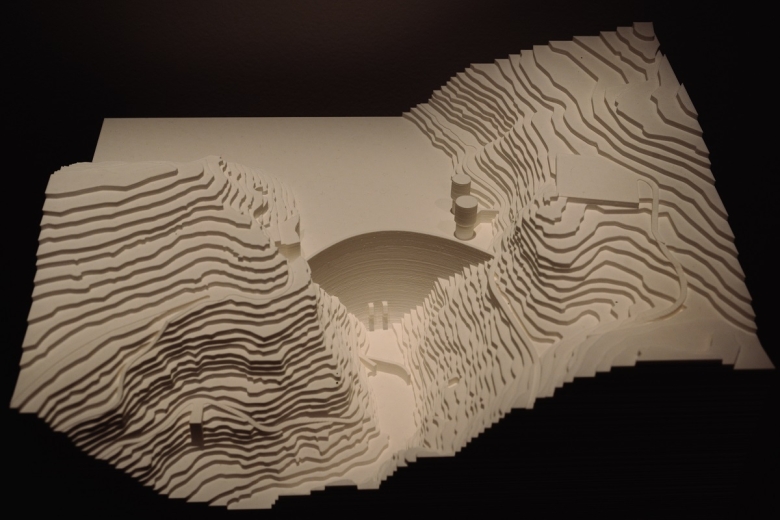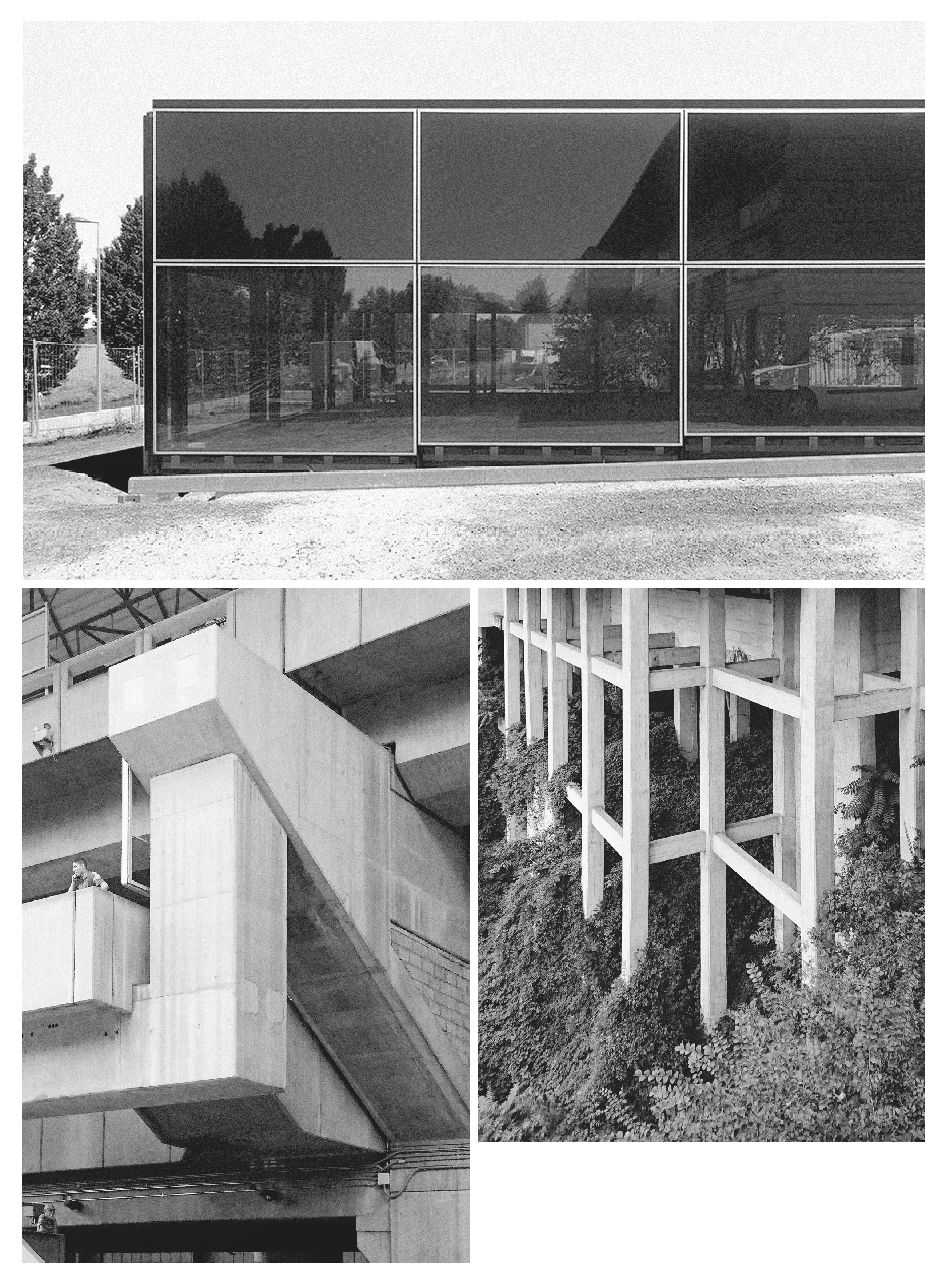
As part of the closing of the POWERPOINT exhibition, MAAT is hosting the architect Gilles Delalex, director of the Parisian studio Studio Muoto. For the first time in Portugal, Gilles Delalex presents Holy Highway: a collection of texts, projects, and images by the Parisian architecture studio on the subject of the highway, the most radical public space ever imagined, but also the most divisive and criticized today, questioning our relationship with modernity.
The highway as an obsession, capable of illuminating the unconscious of an architectural practice. Such could be a succinct description of this book, which gathers unreleased or already published texts by Studio Muoto on this intriguing topic. This eclectic collection of texts - excerpts from articles or lectures, notes, project descriptions - is complemented by an outright photographic scrapbook produced by the architects who designed the French pavilion at the 18th Venice Architecture Biennale, 2023. These images, taken during his travels and his many projects, illustrate his obsessions as much as the wanderings of his thoughts. Holy Highway reflects the principle of the exploratory journey as the foundation of an architectural sensibility.
Language: English
Gilles Delalex, French architect, studied in Grenoble and Montreal. He has a master's degree in Urban Planning and a doctorate in Art from Alvar Aalto University, Helsinki. He is a professor at the Paris-Malaquais School of Architecture, where he is head of the Theory, History and Project department. He taught at the École des Ponts et Chaussées from 2004 to 2008. He has been a researcher at the Laboratoire Liat, since 1998.
Studio Muoto is an architecture agency based in Paris since 2003, founded by Gilles Delalex and Yves Moreau. Its activities cover the fields of project management, research, and teaching. Muoto’s projects are often characterised by minimal structures that allow a multitude of different activity forms to be combined and to respond to economic and aesthetic issues. The agency pleads for a primitive architecture that is both frugal and generous, and that can evolve over time.
Graduated in architecture with honours from the Universidad Católica de Chile in 2009 and the founder of CAMPO Arquitectura.
His research focuses on the territorial impacts of the Anthropocene, including studies of hydroelectric infrastructure, extractive processes, changes in the landscape, and the full gamut of physical manifestation of energy.
As a member of the National Monuments Council in Chile, he was responsible for interventions in protected areas and historical monuments. Following this period of training, he began his independent professional practice and was invited to give lectures at institutions such as the Goethe Institute in Santiago, Chile, and on the Master's programme in Cultural Heritage at the Universidad Católica de Chile; later on at the Universidade Autónoma de Lisboa (UAL), the Lisbon School of Architecture (FAUL), the University of Évora; and recently at the Iscte School of Architecture.
Since 2014, he has worked on a wide range of architectural projects, including territorial research, architectural practice, furniture prototyping, curatorial projects, and collaborations with cultural institutions in both Chile and Portugal. He is currently a Ph.D candidate in the Iscte programme in Lisbon with the project "Powerpoint: Hydroelectric Infrastructure in Portugal and the Territory as a Project."
Through the CAMPO Arquitectura studio, Corales has undertaken a diverse array of architectural projects, including housing, infrastructure, and public competitions. He also leads the international furniture design incubator MOB Projects, a platform for the development of furniture design projects involving architects and contemporary artists.
In 2019, his studio won an international competition to co-curate the 2020–2022 Conference Programme CAMPO COMUM, a three-year conference programme for the Lisbon Architecture Triennale and Garagem Sul at the Centro Cultural de Belém.
Eduardo Corales serves as the coordinator for International Partnerships at the Lisbon Architecture Triennale, and works as an independent architecture consultant for the EDP Foundation's Electra magazine. He currently resides and works in Lisbon.
Partnership: ISCTE

